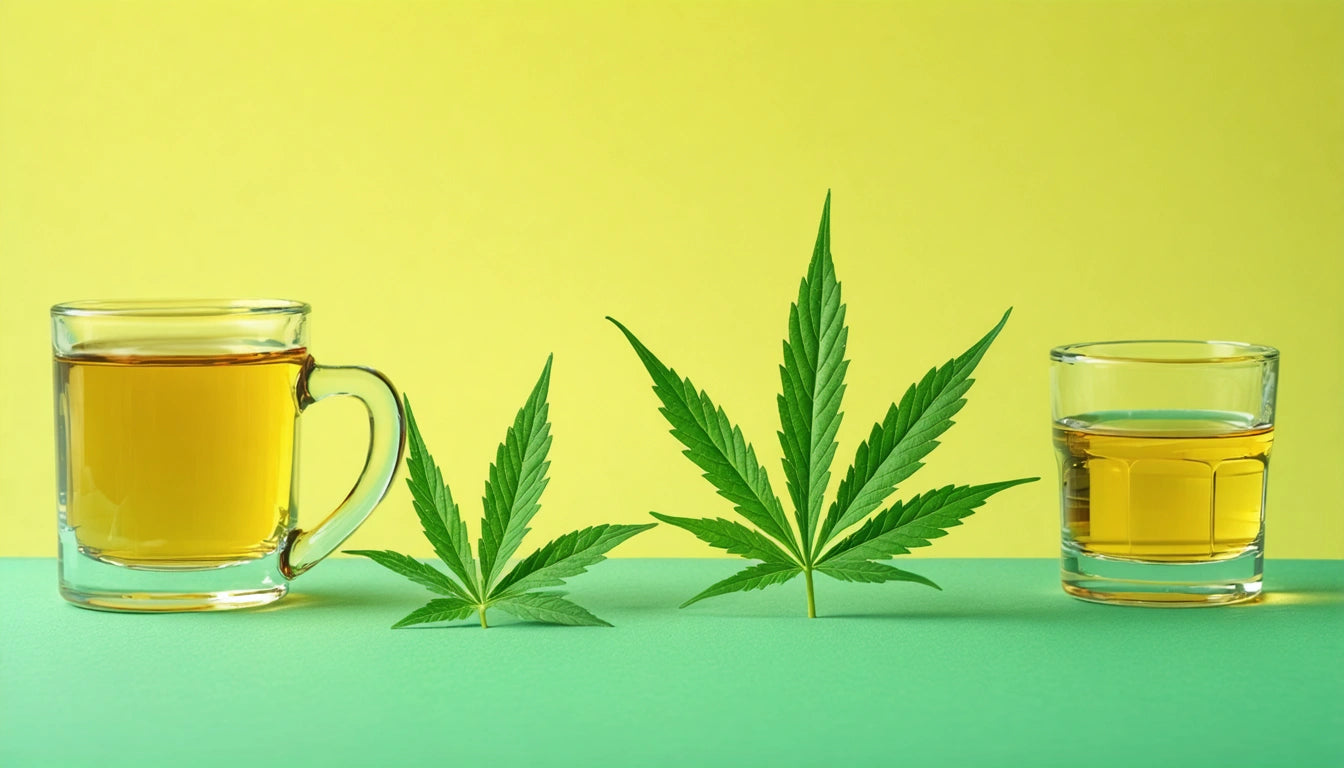How THC Consumption Impacts Liver Health: What You Need to Know
As cannabis legalization expands across the United States, questions about how THC affects various bodily systems have become increasingly important. One common concern among consumers is whether THC affects liver health. This comprehensive guide explores the relationship between THC and liver function, examining different consumption methods and their potential impacts.
THC and Liver Interaction: Understanding the Basics
The liver plays a crucial role in metabolizing substances that enter our bodies, including THC (tetrahydrocannabinol), the primary psychoactive compound in cannabis. When THC enters the bloodstream, the liver processes it through a system of enzymes known as the cytochrome P450 complex.
According to research on how THC works in the body, the liver transforms THC into metabolites, primarily 11-hydroxy-THC, which is actually more potent than the original compound. This metabolic process is why the effects of THC can vary significantly depending on how it's consumed.
Different Consumption Methods and Liver Impact
How you consume THC significantly influences its interaction with your liver. Different methods result in varying levels of liver involvement and potential impact.
Edibles and Liver Processing
When consuming edibles, THC undergoes what's called "first-pass metabolism" in the liver. This process converts THC to 11-hydroxy-THC, resulting in stronger and longer-lasting effects. This intensive processing raises questions about whether THC edibles are bad for your liver, especially with regular use.
For those concerned about liver health, proper storage of cannabis products is essential to maintain potency and prevent degradation that could lead to overconsumption. Many consumers use specialized storage solutions like mylar bags that help preserve freshness while preventing accidental consumption by children or pets.
Inhalation Methods
When THC is inhaled through smoking or vaping, it enters the bloodstream directly through the lungs, largely bypassing the initial liver metabolism. While this reduces immediate liver processing, the THC eventually circulates through the liver as it's cleared from the bloodstream.
As discussed in an article about THC overconsumption, inhalation methods typically allow for more precise dosing control, which can help minimize potential liver stress from excessive consumption.
THC Beverages and Liver Health
THC-infused beverages, including seltzers and other drinks, represent a growing market segment. These products raise specific questions about whether THC drinks affect the liver differently than other consumption methods.
The liver processes THC beverages similarly to edibles, though absorption rates may differ depending on formulation. For those wondering if THC seltzers are bad for you, current research suggests that moderate consumption presents similar liver considerations as other edible products.
Current Research on THC and Liver Health
Scientific understanding of how THC affects liver health continues to evolve, with studies showing complex and sometimes contradictory results.
Potential Benefits
Some research suggests that cannabinoids may actually offer protective effects for the liver under certain conditions:
- Studies have found that some cannabis users show lower rates of non-alcoholic fatty liver disease
- Cannabinoids may help reduce inflammation, which can benefit liver health
- Some research indicates potential therapeutic applications for specific liver conditions
A comprehensive examination of how cannabis impacts liver health shows that the relationship is complex and may depend on individual factors like overall health status and consumption patterns.
Concerns and Risks
Despite potential benefits, several concerns exist regarding THC and liver health:
- Drug interactions: THC can affect how the liver processes other medications
- Existing conditions: Those with liver disease may process THC differently
- Heavy use concerns: Excessive consumption may potentially stress liver function
- Product quality: Contaminants in unregulated products could pose liver risks
For individuals wondering if THC can cause liver damage, the answer appears to depend on multiple factors including consumption patterns, individual health status, and product quality.
Guidelines for Safer THC Consumption
To minimize potential liver concerns while using THC products, consider these guidelines:
- Start with low doses, especially with edibles and beverages
- Discuss cannabis use with healthcare providers, particularly if you have existing liver conditions
- Be aware of potential drug interactions if taking medications
- Choose regulated products to avoid contaminants
- Consider consumption methods that allow for more precise dosing
- Stay hydrated, as discussed in this article on THC and hydration
Understanding how THC interacts with your digestive system is also important, as explored in research about THC's impact on digestive health. This knowledge can help address concerns about whether THC can make your stomach hurt and how to minimize such effects.
Future Research Directions and Recommendations
As cannabis legalization expands, more research is needed to fully understand the relationship between THC and liver health. Future studies should focus on:
- Long-term effects of different consumption methods
- Specific impacts on individuals with existing liver conditions
- Potential therapeutic applications for liver health
- Differences between various cannabinoids and their liver effects
While current evidence suggests that moderate THC consumption doesn't cause significant liver damage in healthy individuals, everyone's body responds differently. Those with liver concerns should consult healthcare providers knowledgeable about cannabis and consider starting with minimal effective doses while monitoring for any adverse effects.
By staying informed about THC effects and benefits and following responsible consumption practices, users can make more informed decisions about their cannabis use and potential impacts on liver health.
",










Leave a comment
All comments are moderated before being published.
This site is protected by hCaptcha and the hCaptcha Privacy Policy and Terms of Service apply.